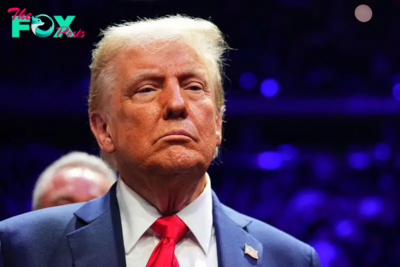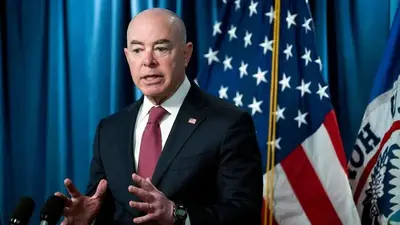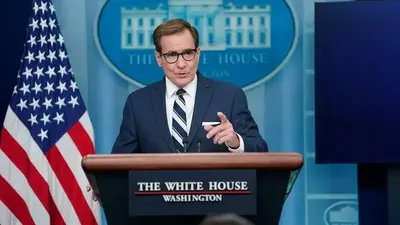Politics
Boosting Africa's creative industries should be leaders' priority, critics say
When delegates from 49 countries and the African Union converged in Washington, D.C., for the U.S.-Africa Leaders Summit this week, it appears one of Africa's most popular cultural ambassadors, Afrobeats superstar Burna Boy, was not top of mind.
Even so, the Grammy-award-winning artist sold out the nearby 20,000-seat capacity Capital One Arena just a few days beforehand. He also had filled every seat in iconic arenas like Madison Square Garden and State Farm Arena during the same "Love, Damini" tour.
"People, like Burna Boy, the African continent has so many of them," Roger Muntu, host of the "RM Show," Voice of America's entertainment and culture show aimed at Africa, said. "They just haven't been discovered yet. Because there's no way, there's no means in this industry."

The delegates had the opportunity to attract more investors to help build Africa's dynamic creative and cultural industries (CCI) – a sector that includes music, film, fashion and visual arts, and could bring in billions of more dollars into Africa.
But even though their focus was on the more pressing needs of a continent that has struggled with decades of wars, famines and inadequate infrastructure, Muntu sees far greater potential in the impact CCI can have on Africa's overall growth.
"This cultural entertainment industry will generate, win more money faster, quicker that you will use for all these other things that you need for health, for education," Muntu said. "That's how fast that this business can generate money if, and only if, the governments focus on that."

According to UNESCO, CCI employs half a million people in Africa and generates $4.2 billion in revenue. According to Selam, a platform that supports the growth of CCI in Africa, much of the financing comes from non-traditional investors, since banks and governments are hesitant to fund these sectors.
"It is a powerful industry, with a tremendously important potential but undermined by the leaders," Ambassador Rama Yade, senior director of the Atlantic Council's Africa Center, said. "They only dedicate 1% of their GDP or the GDP of their countries to the African creative industry."
Yade used the film "Black Panther" to illustrate the influence of soft power, a term first used by Joseph S. Nye Jr., former chair of the National Intelligence Council. According to the Cambridge Dictionary, soft power refers to a country's use of cultural and economic influence to convince other nations to do something, instead of Military force.
"It ('Black Panther') talks about Africa, and it features African artists," Yade said. "America knows about soft power. They know how powerful it is to convey your message through songs, movies, TV shows. That's the way America became the first economic power in the world. Through influence - billions of minds."
The fictional movie's representation of Africa helped to make it one of the highest grossing films of all time, raking in over $1.3 billion in box office sales.
Muntu can also attest to the influence of soft power. He has a group of about 25 African American friends who get together every Saturday to watch Nollywood films on Netflix. Nollywood is the moniker for the Nigerian film industry.
"I spoke to them once to ask them, why do you want to do that? And they say, 'Roger, this is bringing us back to our culture,' " Muntu said. " 'We've seen the culture that they never taught us, here. We didn't know that all this existed in Africa. We didn't know that people were living like this in Africa.' "

Before the U.S.-Africa Leaders Summit came to close on Thursday, President Joe Biden pledged to invest $55 billion over three years in Africa to help fund health programs, food security, clean energy infrastructure and the digital economy. If used effectively, these finances could go a long way for the continent with the fastest growing population in the world, according to Forbes.
Vice President Kamala Harris announced that $100 million would be used to fund the Young African Leaders Initiative. Part of that money will be used to support the private sector, expand digital connectivity and empower young African entrepreneurs.
Some of those funds could be used to support CCI on the continent, but only time will tell. Muntu felt the investments geared towards creative industries at the summit were insufficient. But he is still confident in the potential of one of Africa's most dynamic sectors.
"You have not seen anything yet about Africa. There's so much that's coming," Muntu said. "It's just the beginning. You have other countries who are coming and you're not ready for it, yet."
-

 Politics10h ago
Politics10h agoWhy Trump Actually Needs Mexico
-

 Politics10h ago
Politics10h agoMan Convicted of Killing Laken Riley Sentenced to Life in Prison Without Parole
-

 Politics12h ago
Politics12h agoAmericans agree more than they might think − not knowing this jeopardizes the nation’s shared values
-

 Politics12h ago
Politics12h agoRed flag laws are still used in Colorado’s Second Amendment sanctuaries, just less frequently
-

 Politics16h ago
Politics16h agoHow the Biden Administration Protected Abortion Pill Access—and What Trump Could Do Next
-

 Politics16h ago
Politics16h agoWhy Trump’s Tariffs Could Raise Grocery Prices
-

 Politics1d ago
Politics1d agoThe First Trans Member of Congress Expected Pushback Like Mace’s Bathroom Rule
-

 Politics1d ago
Politics1d agoNew York Prosecutors Oppose Dismissing Trump’s Hush Money Conviction


























